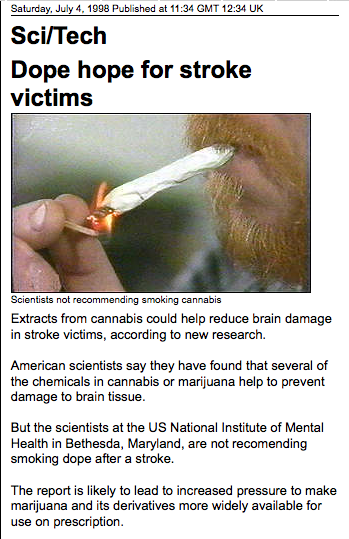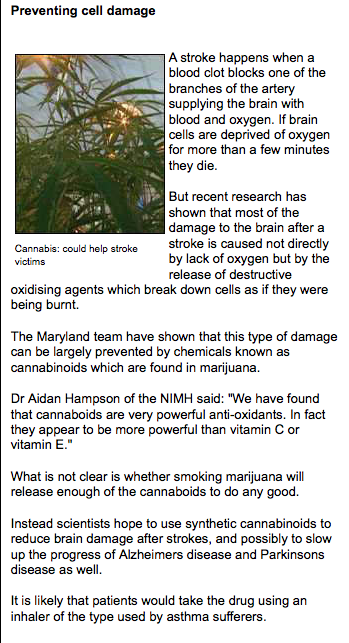“The compound in marijuana that produces a high, delta-9 tetrahydrocannbinol or THC, may block the spread of several forms of cancer causing herpes viruses, University of South Florida College of Medicine scientists report.
Once a person is infected with herpes, the viruses can remain dormant for long periods within white blood cells before they burst out and begin replicating. This reactivation of the virus boosts the number of cells infected thereby increasing the chances that the cells will become cancerous.
The USF team found that this sudden reactivation was prevented if infected cells were grown in the presence of THC. Furthermore, the researchers showed that THC acts specifically on gamma herpes viruses. The chemical had no effect on another related virus, herpes simplex-1, which causes cold sores and genital herpes.
Small concentrations of THC were found to be more potent and selective against gamma herpes viruses than the commonly used antiviral drugs on the market.
The findings, published Sept. 15 in the online journal BMC Medicine, could lead to the creation of antiviral drugs based on nonpsychoactive derivatives of THC.”
http://stdlabtest.com/2009/06/30/cannabis-may-help-combat-herpes-viruses/






